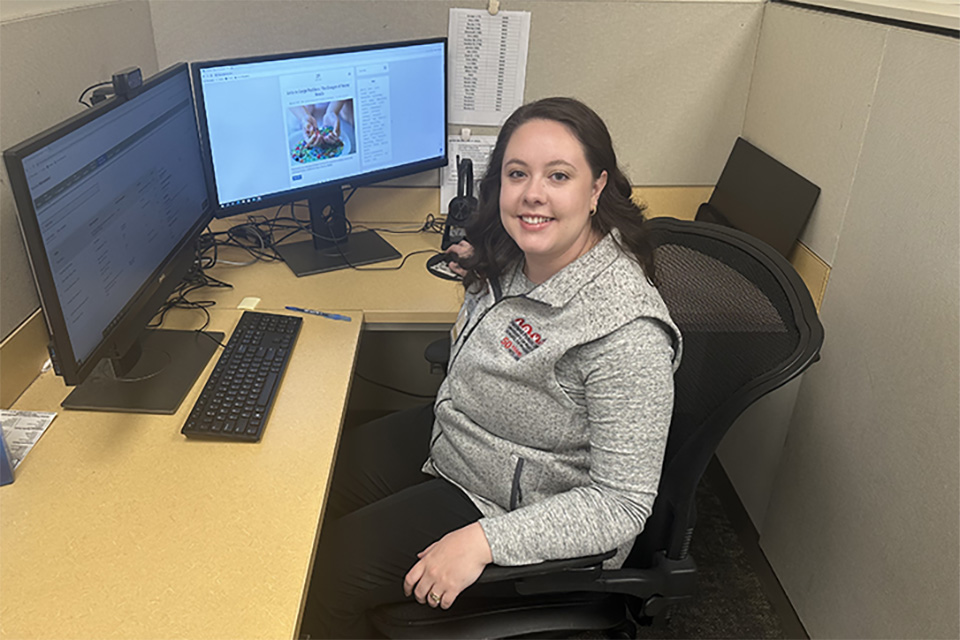Meet the Maryland Poison Center Experts: Victoria
This post originally appeared on the Maryland Poison Center’s blog, eAntidote.
One of the goals of our eAntidote blog is to introduce you to the real poison experts who answer the phones at the Maryland Poison Center (MPC), as well as our staff members. The MPC is located within the Department of Practice, Sciences, and Health Outcomes Research (P-SHOR) at the University of Maryland School of Pharmacy. In addition to being nurses and pharmacists, they are parents, grandparents, artists, athletes, sports fans, and more! Read the Q&A below to get to know one of our specialists: Victoria Macdonald.
Why did you go into the field of pharmacy?
I grew up with my grandparents and would go with them to their medical appointments and to the pharmacy to pick up their prescriptions. I remember the pharmacists were nice and caring, which made an impression on me. When it came time for college, I was thinking about going to pharmacy school. I was able to do some shadowing with pharmacists before I made a decision. While shadowing, I learned more about what they do and how much they help people. I decided that that’s what I wanted to do as a career and went to pharmacy school.
How did you end up working at the poison center?
One of the professors in pharmacy school was the director at the local poison center. One of my rotations during school was at that poison center and I thought that the work that they do was very unique and interesting. There was an open position for fourth year pharmacy students to work there, so I applied, got accepted, and loved it! I continued to work there during the COVID-19 pandemic and became more and more interested in pursuing a clinical toxicology fellowship. That same professor became my mentor and encouraged me to apply for the fellowship here at the MPC.
What do you enjoy most about your work?
I really enjoy the wide range of different tasks I get to do each day, such as doing research, learning about cases in our daily rounds, and taking calls in the center. Each part of my job is a little bit different, but all results in helping in poison emergencies or general information about poisons and how to prevent poisonings. I also enjoy the data process. We create a case for each poisoning we are called about. Then we use the records of exposure to learn how to better help the next person with a similar exposure. We review data to ensure we keep up with any new or developing changes with where, when, how, and why poisonings happen.
Why are Poison Centers and poison specialists like you important?
Poison Centers are important because they are a really accessible way to help people when they are poisoned or have general questions about poisons. Calling 1-800-222-1222 gets you connected to a Pharmacist or Nurse with special training to manage poisonings, it is completely free to call, and it’s open 25/7/365! Poison Specialists are important because we can help manage a poisoning exposure, and also prevent future poisonings from happening by giving advice on proper storage, making sure people understand how and when they are supposed to take a medicine, and more.
What’s an important message you want to share about poison safety?
Poisonings can be prevented! Safe storage of medicines and household products is one of the biggest things you can do to prevent a poisoning from happening. But even if it does happen, the Maryland Poison Center is always available 24/7 not only to help manage exposures but to prevent ones from happening.
What do you enjoy doing when you’re not working?
Outside of work I enjoy playing Pokémon Go, watching Formula One racing, reading, and hanging out with friends. I am excited to be in Maryland and discovering a different part of the country, seeing as I’ve lived in Oklahoma my whole life.

